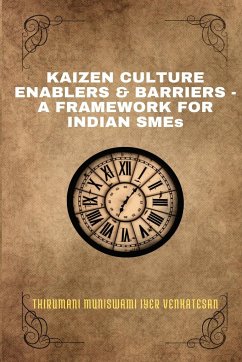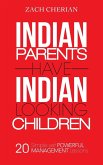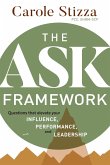Government of India has fixed an ambitious target of 5 trillion USD economies by 2025. Indian SMEs with 45% share in global exports have a significant role in this. Presently it is one seventh of what China is doing on exports. To expand this Indian SMEs have process constraints. Japan had similar experience after Second World War. Their products were rejected worldwide. By deployment of no/low cost continuous process improvement KAIZEN culture in their industries, they could become a world class player. This thesis dwells on a quantitative study that can enhance KAIZEN culture implementation in Indian SMEs. Literature reviews from 152 KAIZEN topic research papers initiated to develop a draft questionnaire required. Pilot study framed to develop 20 enablers and 17 barriers for KAIZEN culture implementation in Indian SMEs. 444 responses were shortlisted from 480 total respondents from industry, academia, and consultants. Descriptive, exploratory factor analysis and confirmatory factor analysis were followed for validating enablers, barriers. Subgroups positive relationship if any was examined under hypotheses test. A framework model has been designed for KAIZEN culture implementation in Indian SMEs. Case studies were developed with this model. Literature review identified that only 31.8% of Indian SMEs are exposed to KAIZEN culture. KAIZEN research studies on service sector are very few. Size specification definition for Indian SMEs is too tiny to be on a level playing field. During data survey, lessons learned to develop a win-win relationship with Indian SMEs. Quantitative analysis trimmed enablers and barriers beyond threshold limit of 0.4 in factor loadings. This has paved the way for development of a workable framework model through literature and industry expert's support. Framework model proved viability and feasibility on service sector case studies also.
Bitte wählen Sie Ihr Anliegen aus.
Rechnungen
Retourenschein anfordern
Bestellstatus
Storno







